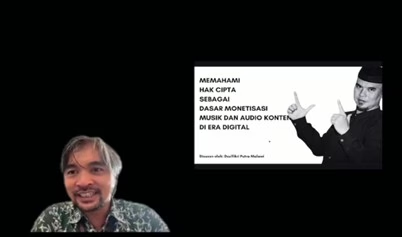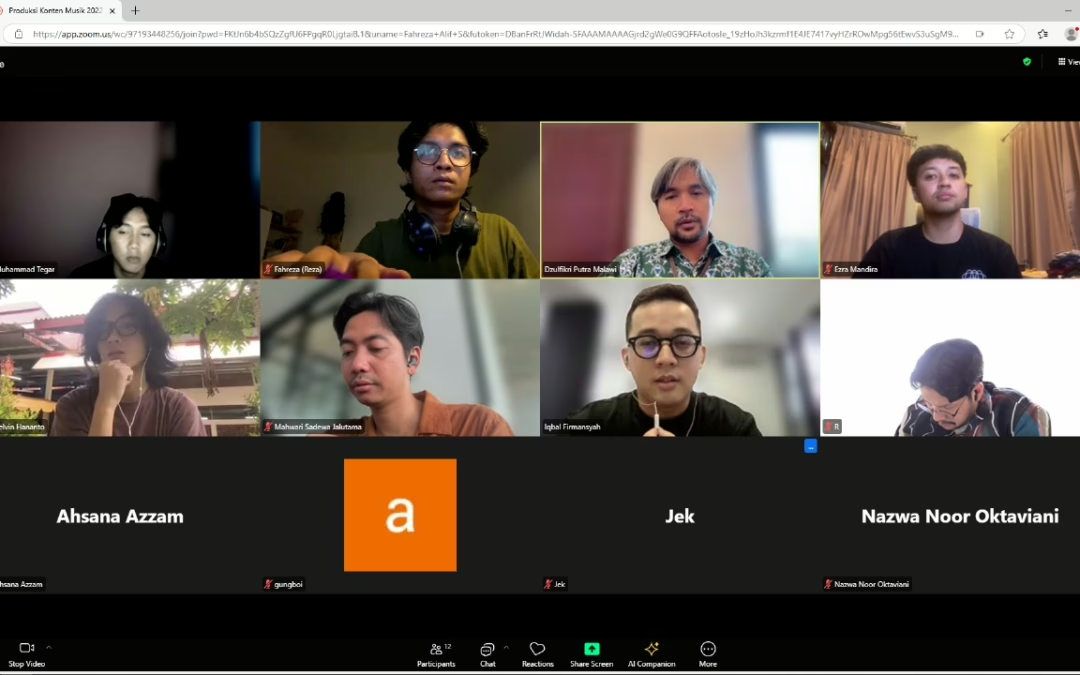Depok-Media Production study program, Vocational Education Program, Universitas Indonesia (UI), held a guest lecture themed “Understanding Copyright as the Basis for Monetizing Music and Audio Content in the Digital Era” on May 7, 2025. This lecture presented Dzulfikri Putra Malawi, Assistant to the President’s Special Staff for the Creative Economy and Founder of Wara Musika. The guest lecture integrated with the Music Content Production course not only provided in-depth insight into copyright, but also opened up discussions about monetization opportunities in the digital music industry. Students were invited to understand various basic concepts in music production, as well as design music content production concepts according to analyzing current trends.
On that occasion, Dzulfikri stated that copyright is an exclusive economic right granted to creators to reproduce, distribute, and monetize their work. This right applies automatically since a work is manifested in a tangible form and announced to the public. In Indonesia, copyright is regulated in Law Number 28 of 2014 concerning Copyright. The purpose of this Copyright Law is to protect the rights and interests of creators and owners of related rights; encourage the growth of the creative economy; and provide incentives for creativity and innovation.
 (Photo: Dzulfikri explains the importance of monetization for audio content production)
(Photo: Dzulfikri explains the importance of monetization for audio content production)
Furthermore, Dzulfikri said that there are nine exclusive economic rights for creators or copyright holders, namely 1) publishing creations; 2) duplication of creations; 3) translation of creations; 4) adaptation of creations; 5) distribution of creations; 6) performance of creations; 7) announcement of creations; 8) communication of creations; and 9) rental of creations. “These rights are the basis for creators to control the use of their works while maximizing income through various monetization schemes,” added Dzulfikri.
Dzulfikri explained that the digital era has opened up new opportunities for the music industry through platforms such as Spotify, YouTube, Apple Music, TikTok, and Instagram. However, many content creators do not fully understand how to legally monetize their work. In the music industry, there is a Collective Management Institution (LMK) which is tasked with collecting and distributing royalties to songwriters and related rights owners. LMK acts as an intermediary that collects and distributes royalties from the use of songs on various platforms.
Although digitalization opens up many opportunities, challenges such as piracy, inequality in royalty distribution, and lack of copyright education are still major problems. Dzulfikri is optimistic that with increasing literacy about copyright, creators and content creators can be more independent in managing their work.
Head of the Media Production Study Program, Ngurah Rangga Wiwesa, M.I.Kom., said that this guest lecture will provide an in-depth understanding of copyright and monetization strategies in the digital era. “Through the knowledge provided by industry practitioners, students are expected to become a generation of creators who are not only productive, but also respect the principles of economic justice in the creative industry. Copyright is not just protection, but also the foundation for building a sustainable and fair music ecosystem,” concluded Rangga.


